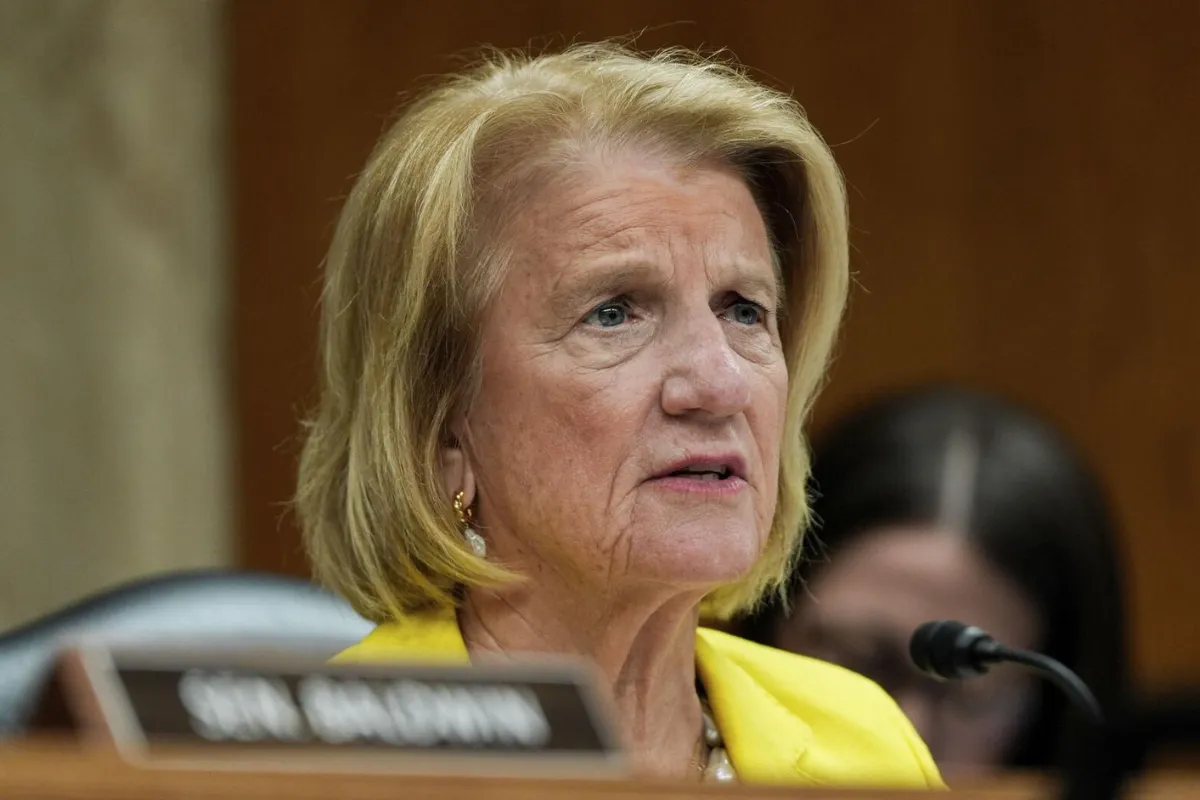A key ruling in the U.S. Senate could temporarily stall a major federal package, but Sen. Shelley Moore Capito remains optimistic that Congress will move swiftly to pass the One Big Beautiful Bill Act, a sweeping budget and tax relief measure.
On Thursday, Senate Parliamentarian Elizabeth MacDonough blocked several proposed Medicaid changes in the Senate’s version of the bill, citing the Byrd Rule—a rule that bars unrelated policy items from being included in budget reconciliation bills.
This decision came just ahead of a planned vote on the package, potentially throwing off lawmakers’ hopes of final passage before the July 4 recess.
The changes that were removed included limits on Medicaid coverage for non-citizens, funding restrictions for gender-affirming care, and other proposed cost-saving measures.
These provisions now either must be rewritten or dropped entirely to meet reconciliation requirements—potentially complicating the bill’s timeline.
Still, Capito believes lawmakers can reach a compromise in time.
“We were supposed to begin debating the bill at noon [Friday], but that may be pushed back 24 hours,” she told reporters. “We’re still waiting on a final score and the permanent bill text. It’s getting close to July 4, but we want to get it right.”
The One Big Beautiful Bill Act—which the House passed in May—serves as a vehicle for extending the 2017 Trump-era tax cuts. In addition to renewing tax relief, the bill includes more than $1.3 trillion in spending cuts to offset the cost. Yet a Congressional Budget Office analysis shows it would still add $3.3 trillion to the national debt over the next decade.
Capito said the Medicaid changes were never intended to strip benefits from those who qualify. “I’ve said all along, I don’t want to eliminate benefits for people who deserve them,” she said. “But those who aren’t eligible shouldn’t be receiving them.”
Still, opposition to the Medicaid proposals has grown. Families USA, a health advocacy group, estimates West Virginia could lose $666 million in annual federal Medicaid funding, with up to 69,000 residents potentially losing coverage if the original cuts were approved. The concern even led to a sit-in at Capito’s Charleston office, resulting in six arrests.
According to the West Virginia Department of Health Services, over 500,000 residents—roughly 29% of the state’s population—were enrolled in Medicaid as of January, including more than half of all children in the state.
Despite these concerns, Capito emphasized the broader benefits of the bill, particularly the tax relief measures. “This bill would extend tax relief for every working family in West Virginia,” she said. “That’s more money in people’s pockets to help with groceries, gas, and everyday expenses.”
The bill also includes child tax credit increases, tax breaks on overtime and tips, and new savings accounts for children under 8. It allocates billions for defense, border security, and immigration enforcement, while reversing many parts of the 2023 Inflation Reduction Act.
“There’s a lot in here that people aren’t talking about—national security, border security, energy independence,” Capito said. “I’m excited about what this means for West Virginia families. It rewards their hard work.”
With tight deadlines and renewed scrutiny over the bill’s healthcare impacts, the Senate faces a race against the clock. But for Capito, the mission is clear: protect benefits for those who need them, trim waste, and ensure that hardworking families see real relief.
















